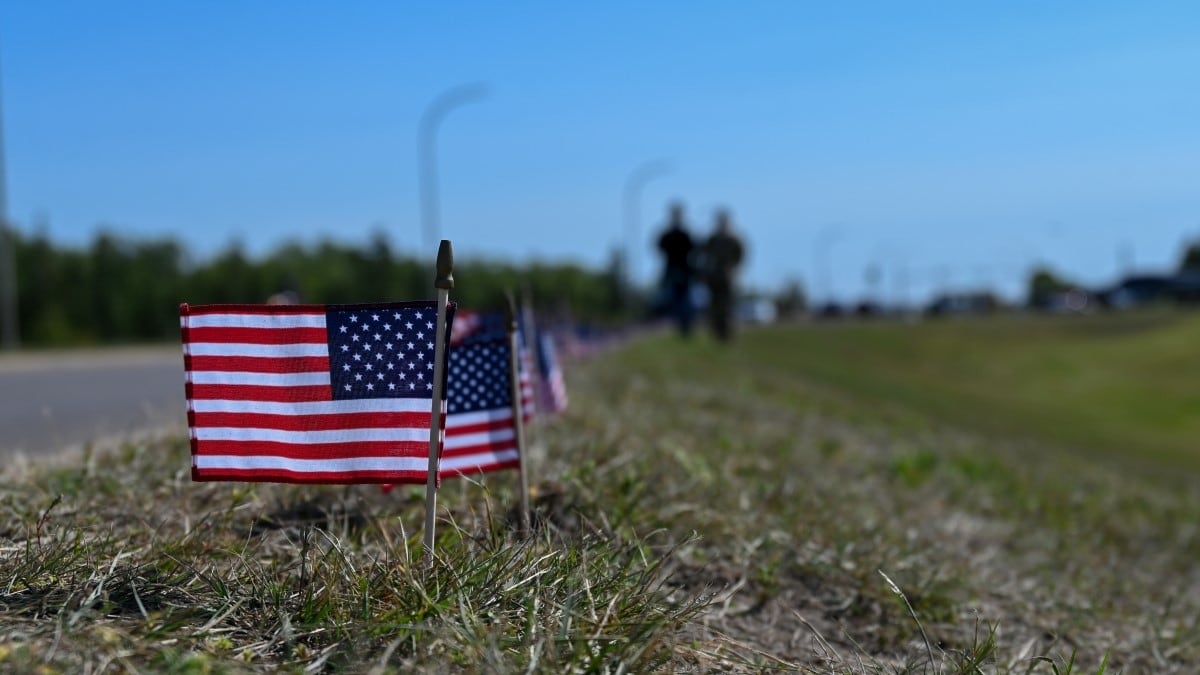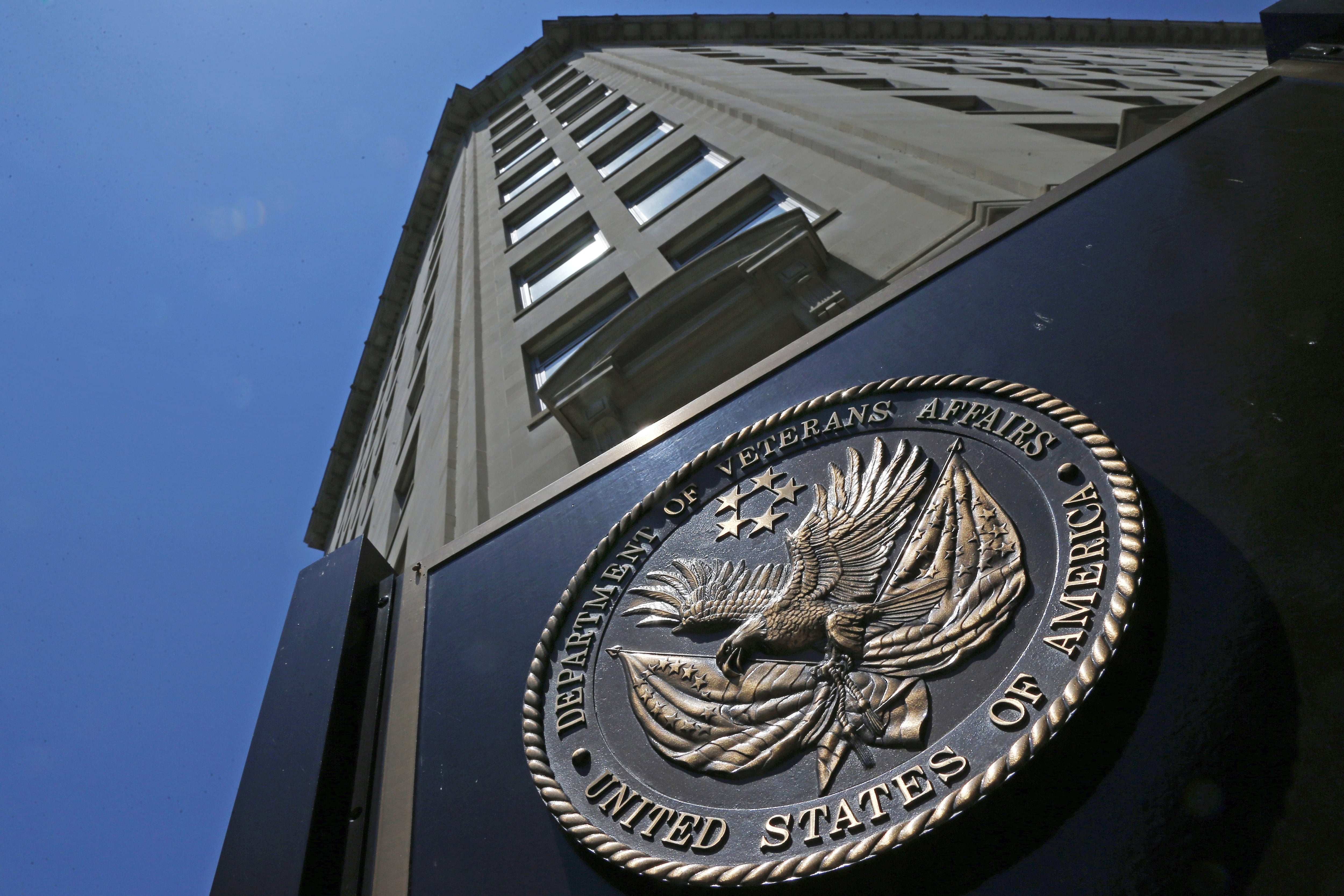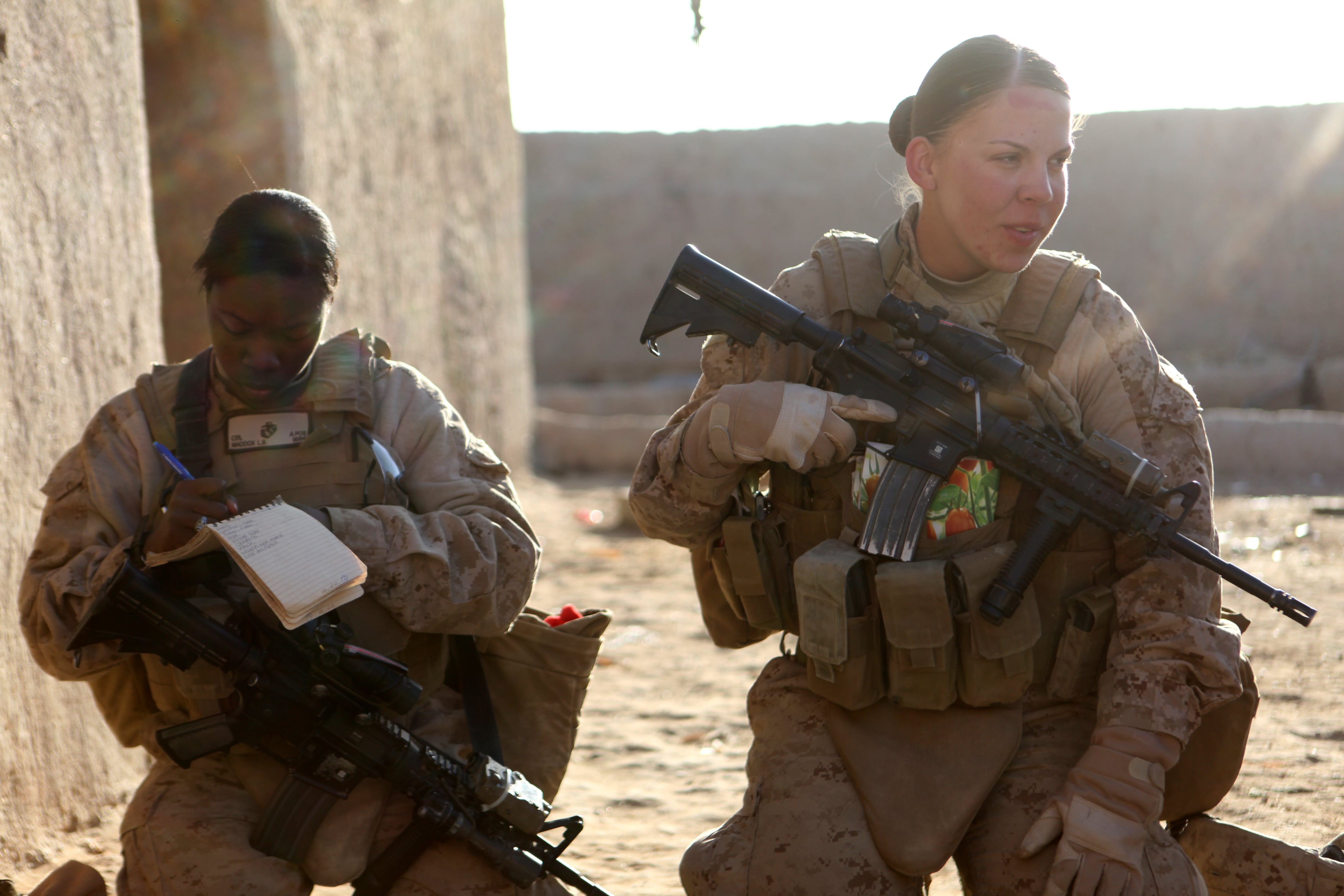Two titles note the duration of two wars. In two other books, blind combat veterans show spunk. Other subjects include moral injury, maps, majors, Muslims and married caregivers. And there's fine fiction about Nashville and West Point.
Here's your guide – by category and in order of reading satisfaction – to potential gifts for your favorite reader (including yourself).
NONFICTION

"What Have We Done: The Moral Injury of Our Longest Wars" by David Wood
What Have We Done: The Moral Injury of Our Longest Wars
by David Wood, Little, Brown, 304 pages, $28
Others, including veteran Eric Fair in "Consequence," have written memorably and personally about wounds not physical. What this Pulitzer Prize-winning, 30-year conflict correspondent brings to the topic – besides journalism – is the perspective of being raised as a Quaker and of doing community service as a conscientious objector.
And rather than offering intimations of morality, he is blunt. The U.S. "has spent years and fortunes perfecting the most realistic and thorough combat training" but omits something: "Those we send to war are never trained to anticipate the moral quandaries of killing that they will face."
After-service treatment fares little better. A 2015 study indicates "that the most widely used therapies for [post-traumatic stress] were only marginally effective."
There is only one "government initiative I could find that specifically addresses moral injury," Wood writes. So the healing is "up to us" and "peers, neighborhood, faith congregations, service organizations." His call to action is a reminder that "we are all connected by the wars."

"Maps of War: Mapping Conflict Through the Centuries" by Jeremy Black
Maps of War: Mapping Conflict Through the Centuries
by Jeremy Black, Conway, 224 pages, $50
The military and maps historian says "war requires a spatial as well as temporal sense," and his intricately rendered maps do most of the explaining.
You can imagine yourself walking amid armies and artists in drawings that tell stories visually. Sometimes, however, even the coffee-table size is not big enough. An 1878 British map of Afghanistan, for example, would be more relevant if its details were legible. But overall the images – in splendid styles that can belie their topics – will appeal to history buffs, armchair travelers and graphic designers.

"Fighting Blind: A Green Beret's Story of Extraordinary Courage" by Ivan Castro and Jim DeFelice
Fighting Blind: A Green Beret's Story of Extraordinary Courage by Ivan Castro and Jim DeFelice, St. Martin's, 304 pages, $27
The soldier and one of three co-authors of "American Sniper" write about Castro's growing up in New Jersey and Puerto Rico, and finding a home in the rigors of military training, which is "a blast" – ironically. "War itself may not be fun, but practicing for it certainly is."
After he is blinded in a mortar strike in Iraq in 2006, Castro realizes that "war, like blindness, is a world of its own." The memoir's second half shows how the Ranger convinces the Army to allow him to attend captain's school: "I didn't want special treatment . . . What I wanted was a chance to provide that I could contribute."
He does, in uniform and in running shorts (finishing a couple dozen marathons), and by talking with Prince Harry at the South Pole.

"Fire in My Eyes: An American Warrior's Journey from Being Blinded on the Battlefield to Gold Medal Victory" by Brad Snyder and Tom Sileo
Fire in My Eyes: An American Warrior's Journey from Being Blinded on the Battlefield to Gold Medal Victory by Brad Snyder and Tom Sileo, Da Capo, 248 pages, $26
The boy who led his "G.I. Joe heroes in ferocious combat assaults" follows Annapolis with Afghanistan, where he receives news about his best Navy friend's death in Iraq, his ex-girlfriend's suicide and his father's death back home. Then the explosive ordinance disposal lieutenant is blinded in an improvised explosive device blast, 10 years after 9/11.
Like the book above, the second part of the memoir is about sightless life but with more of the everyday frustrations: "Instead of folding up a metal detector, I now had to fold up a cane."
Snyder learns there are dreams "where I could see just fine" ¬but "wake up to darkness." He overcomes "the difference between how it was and how it is" – especially in water, earning Paralympic Games gold medals for his swimming.

"Night Fighter: An Insider's Story of Special Ops from Korea to SEAL Team 6" by Captain William H. Hamilton Jr., USN, and Charles W. Sasser
Night Fighter: An Insider's Story of Special Ops from Korea to SEAL Team 6 by retired Navy Capt. William H. Hamilton Jr. and Charles W. Sasser, Arcade, 444 pages, $26
The captain died Nov. 23 at age 89, after establishing a reputation as an elder statesman for his leadership in establishing the U.S. reputation in unconventional-warfare training.
But his descriptions are often unstatesmanlike, which is one reason his memoir is engaging. (Another is his cowriter's experience with 48 other books.) For example, a State Department official, circa 1961, is "a pencil dick with an Errol Flynn mustache and a Bud Abbott face."
He's no kinder to himself, including his marriage record: "My life didn't call for a wife," although he changes his mind with his fourth, Barbara. They met while working at the CIA.
His service takes him to Vietnam, Cuba, Grenada, Congo and to "a laundry room" in Bolivia to view Che Guevara's body: "He was a vicious bastard with little regard for human life. Still, I had to hand him one thing: He was good at what he did."

"Black Flag Journals: One Soldier's Experience in America's Longest War" by Dennis John Woods
Black Flag Journals: One Soldier's Experience in America's Longest War by Dennis John Woods, Koehler, 360 pages, $29
The retired command sergeant major is "not the most eloquent writer" but surely one of the most meticulous. His "journal entries and recollections" are the basis for his methodical look at his service that includes 304-plus mounted patrols ("not every patrol was recorded").
He's modest and inventive (a howitzer night direct-fire system made for $37), artistic (a mobile made of mortar and rocket fragments), and astute (about combat versus civilian life and "who's a shooter and who's not").

"American Warfighter: Brotherhood, Survival, and Uncommon Valor in Iraq 2003-2011" by J. Pepper Bryars
American Warfighter: Brotherhood, Survival, and Uncommon Valor in Iraq 2003-2011 by J. Pepper Bryars, Barnhill, 352 pages, $10
He holds an Army Commendation Medal for his National Guard service, and the columnist interviews 10 recipients of honors such as the Silver Star.
While politicians "sent our military to war, but not our nation," why would men choose to fight?
"This was the project of our generation," explains an Army paratrooper. "I was not going to be left behind." Not even when wounded: "You've been shot, but you can't stop," says a Special Forces sergeant. "If you stop you die."
The accounts from Nasiriyah to Najaf are vivid and framed chronologically and unnecessarily political with Bryars' estimations of success (Saddam Hussein's "goal of developing a WMD program was halted") and weakness (in the end, the U.S. "walked away.")

"Wounded Warrior, Wounded Wife: Not Just Surviving but Thriving" by Barbara K. McNally
Wounded Warrior, Wounded Wife: Not Just Surviving but Thriving by Barbara K. McNally, Koehler, 204 pages, $15
"There isn't a sanctioned holiday or even a patriotic song for these women," but the writer, a physical therapist whose charitable foundation offers wives a SPA (Support, Purpose and Appreciation) Day of relaxation, gives voices to those who care for injured veterans.
The 20 tales demonstrate resilience and resistance – and might inspire other caregivers to speak up.

"The Iron Major Survival Guide: Timeless Tips for the Field Grade Officer and Staff Leaders of All Types" by David W. Dunphy
The Iron Major Survival Guide: Timeless Tips for the Field Grade Officer and Staff Leaders of All Types by David W. Dunphy, Graybeard, 208 pages, $17
In this update and with unexpected wit, the lieutenant colonel offers practical and strategic advice for other mid-career officers. Expectedly, much is "inside baseball" but much applies to civilian management.
Topics include running meetings, building relationships, and writing "good." In that regard, the next edition can eliminate "of" in phrases such as "outside of public forums" and can bring the design up to the current level of writing.

"Irregular War: ISIS and the New Threat from the Margins' by Paul Rogers
Irregular War: ISIS and the New Threat from the Margins by Paul Rogers, Tauris, 224 pages, $30
In the "age of insurgencies," ISIS and its ilk are here to stay, and radical fundamentalism is only one challenge. Repeatedly, the professor of peace studies suggests that "core global problems stem from a thoroughly dysfunctional economy and critical environmental constraints," and "revolts from the margins will become the norm."
Making matters worse is that "the solution is seen in Western security circles almost entirely as the use of intense and persistent military force."

"Muslim Americans in the Military: Centuries of Service" by Edward E. Curtis IV
Muslim Americans in the Military: Centuries of Service by Edward E. Curtis IV, Indiana University Press, 120 pages, $21
Curtis opens with "Two Fallen Soldiers named Khan." The first, identified as "Army Reserves (sic) Captain" Humayun Khan, may be familiar to some, as his father's speech at July's Democratic National Convention brought attention to Muslims in the U.S. military.
(The other soldier? Cpl. Kareem Khan, who also died in Iraq.)
This quick read has good intentions but feels like a Wikipedia article. The first documented American service by a Muslim was during the War of 1812, and Revolutionary War troops might "have come from a Muslim background, but without additional research" – which is what you expect in a history book – "it remains hard to know for certain."

"Ridiculosity: A Deployment to Afghanistan" by Todd Campau
Ridiculosity: A Deployment to Afghanistan by Todd Campau, Soldier Todd, 274 pages, $17
In focus are short rants about "lingering issues," latrines, showers and pubic regions, and people – including Army Gen. Stanley McChrystal, who shows up in response to the soldier's email note ("his address was in our global address book").
Four-star officer aside, the collection reads like a stand-up routine with lists of "funny" last names such as Glasscock and Gross.

"Veterans Stories Book III: The Life and Times" by David E. Pressey
Veterans Stories Book III: The Life and Times by David E. Pressey, Pressey, 242 pages, $20
The Korean War veteran edits another volume of oral histories by members – including himself – of Veterans of Foreign Wars Post 11461 in Ojai, California.
The 15 tales go from World War II through Afghanistan in ordinary language by so-called ordinary men and make you think that other service associations ought to document similar recollections.
FICTION

"We Come to Our Senses" by Odie Lindsey
We Come to Our Senses by Odie Lindsey,
Norton, 192 pages, $24
For Evie, a lesbian Army veteran, the past stays "clogged inside my throat" but her present is full of obsessions. A "bored" 26-year-old Nashville enlistee admits "we are all chasing better narratives."
An agent tells a hopeful screenwriter to "quit trying to be high-minded and slick" and "focus on telling a story."
Unlike these characters in this first short-story collection, the writer can express himself.
His lean writing – especially in a helpful, second read – accrues layers that evoke sensuality and sexuality that give the title a double meaning. In 15 stories the Desert Storm veteran explores the effects of war, gender roles, sexual orientation in a culture of "cheap meals at Applebee's" and war heroes whose "statues and movies are everywhere. Forever."

"Spirit Mission" by Ted Russ, Henry Holt
Spirit Mission by Ted Russ, Henry Holt, 336 pages, $28
This first, well-made suspense novel by a former Army officer is two stories in one, and each demands attention.
In Iraq, you're in a Chinook cockpit with a pilot who deviates from a mission in order to make an unauthorized, dramatic attempt – a potential career-ending risk – to rescue a fellow West Pointer.
In the Hudson Valley 25 years earlier, you're on parade with "soldiers thinking and moving as one single, military hive mind." But "in reality it is some four thousand bodies left vacant by minds wandering in separate individual respites."
The cadets bond thanks to a so-called spirit mission that is against regulations, is a test of whether "you are man enough for punishment," and is a helluva lot of fun while the Army tries to get the Navy's goat.

"Music for Love or War" by Martyn Burke
Music for Love or War by Martyn Burke, Tyrus, 288 pages, $17
This comic novel with an imaginative plot takes you from California to Canada to Kandahar. Get through the slow Hollywood parts and you're in combat with Hank, a U.S. soldier who left his heart in there, and his partner Danny, who fell in love in Toronto with a gifted pianist. Her fundamentalist father has ties to some guy named bin Laden. Ben who?
In Afghanistan, killings are so common that "murder mysteries would definitely not sell well." What sells this storyline is the action, perhaps influenced by the author's Peabody Award-winning documentary about war journalists. Sniper Danny – with his gun, audio recordings and a cardboard Liberace figure at hand – pursues the enemy, his Ariana, and your interest.

"The Sting of the Blue Scorpion" by Russell Pelton
The Sting of the Blue Scorpion by Russell Pelton, Outskirts, 278 pages, $18
Locals say the murders of two white women outside an Air Force base in Michigan during the Cold War are obviously the work of a "Negro" airman, and his military trial is orchestrated to end with a guilty verdict.
The courtroom novel in court-reporter prose by a former judge advocate shows the foibles of racist assumptions – until it loses its sting in an abrupt and contradictory ending.





